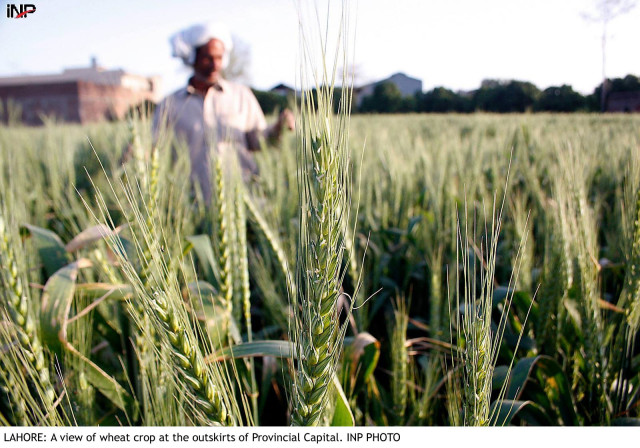Beast-ly tales: Maize fields destroyed after hungry boars pig out on corn
Farmers shoot the animals or release packs of dogs to protect their valuable crop.

Beast-ly tales: Maize fields destroyed after hungry boars pig out on corn
With a bumper crop expected this season thanks to timely rainfall, Salim was confident he would be able to repay a Rs50,000 loan to a relative, a burden weighing heavy on his thoughts. However, a sounder of hungry wild boars dashed all hopes of the farmer from Sera-e-Nehmat Khan village.
“Over a dozen of them enter the field at a time,” he says. The maize he planted after fertilizing and weeding his three acres of land was reduced to mere fodder. “They (boars) like eating the upper portion of the crop that has the cob on it.” Salim adds boars bite into the plant in such a way that the remaining part dries up within 24 hours. “The stench they leave behind is so foul; even the cattle avoid grazing on the remaining maize,” says Salim.

Sher Afzal, another farmer, says boars destroy 30 to 45% of the crop every year and are present in large numbers; the forest and rocky hills of Hazara are their natural habitat. Afzal’s crops have also been demolished by boars. He adds the animals dig up the earth and render the fields infertile for the next season.
Battagram, Kohistan, Haripur, Abbottabad and Mansehra are all districts where farmers grow maize, but the most damage caused by boars is usually reported from the last three.
Cruel measures
From shooting the boars to scaring them with firecrackers and even releasing packs of dogs on them, farmers leave no stone unturned to protect the crop they have invested much time and money in. Many in Haripur, Abbottabad and Mansehra have now cordoned off their fields with electric fences.
Arshad, a resident of Chapra, says the fencing is connected to electric wires and turned on after sunset, keeping their crop and property safe from both boars and thieves. However, electric fencing does have its perils as one or two people from Hazara division learn every year with fatal consequences.
“We are left with no other choice. Either we stay awake all night and guard the crop or use the fencing,” explains Arshad.
Official action
Haripur, Abbottabad and Mansehra are breeding grounds for wild boars. These are mostly of the brown variety rather than black. While stressing it was important to protect the species, Fazal-e-Ahla, a retired subdivisional officer of the wildlife department in Haripur, says the shooting of boars was legal. “They not only cause damage to the crops but to people as well.”
He says the provincial government had set Rs500 as a prize for killing a single boar and farmers would kill them in large numbers till the policy was revised.
Ahla adds foreigners would also come to hunt boars, but they stopped visiting due to security fears. These hunters would kill dozens a day and farmers would encourage the activity as it protected their crops, he says.
The retired official suggested since these three districts of Hazara had a large population of boars, the government could earn millions in foreign exchange by exporting the meat to non-Muslim countries where it is consumed.
Published in The Express Tribune, September 6th, 2014.













COMMENTS
Comments are moderated and generally will be posted if they are on-topic and not abusive.
For more information, please see our Comments FAQ